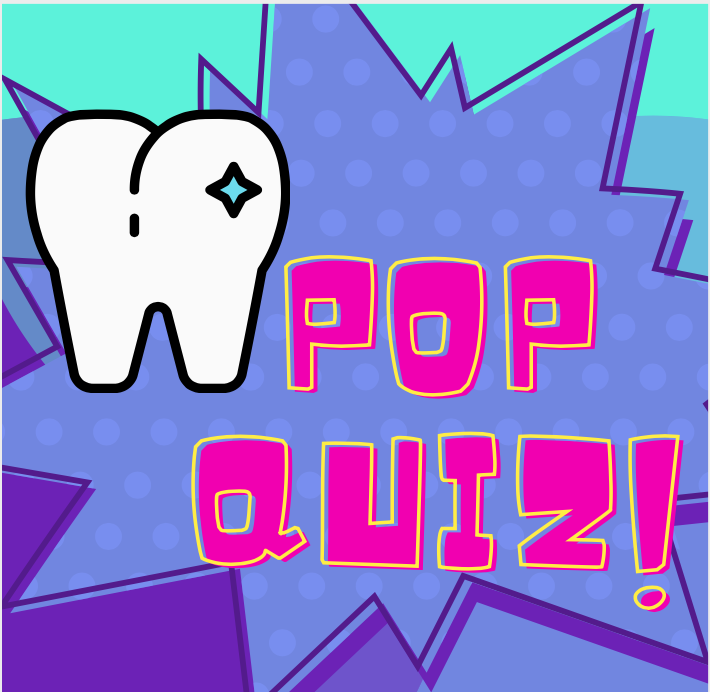Welcome to Dental Health 101! Educating our patients is one of our top priorities at FDA, and we thought it would be fun to test your knowledge of some oral health care basics with a pop quiz! Relax, this won’t impact your final grade. ???? So, grab your extra-sharp No.2 pencils and see if you pass the FDA Basic Dental Health Pop Quiz!
1.When should you bring your child to the dentist for the first time?
A. Between the age of 1 to 3
B. When they lose their first tooth
C. If they have yellow teeth
Answer: A – We recommend you start bringing your children around the age of 1 to 3 to start their dental care. As soon as your child has teeth, they can get cavities and it is helpful to be proactive about oral health care. Each child is different as to when they are ready and our goal is to make coming to the dentist a positive experience for them. Our compassionate team is here to help you start a lifetime of healthy habits for your kids. If you need tips for getting your kids to brush, give us a call!
2. True or False: Dental enamel is the hardest substance in the human body.
Answer: True! It is even harder than bone! A highly resilient surface, it is 96% mineral which makes it extremely durable, lasting hundreds of years. Despite its toughness, enamel can still chip or crack. Take care of tooth enamel and prevent tooth decay by brushing twice-a-day and flossing daily. If a chip happens your tooth enamel can’t repair itself, so come see Dr. Brunacini or Dr. Karagiorgos to talk about your options for repair or restoration.
3. How long should I brush my teeth?
A. 45 seconds
B. 2 minutes
C. 90 seconds
Answer: B – Brush your teeth for 2 minutes, twice-a-day. While the average American only brushes their teeth for about 45 seconds, give your teeth the extra love they need to help reduce plaque and maintain your gum health. Many electric toothbrushes have a built-in timer that automatically shuts off after two minutes…how easy is that?! Brushing your teeth for two minutes twice-a-day, along with daily flossing, regular dental check-ups, and a healthy diet is the basic recipe for a healthy mouth and a healthy life!
4. True or False: A healthy diet can impact your oral health.
Answer: True! A diet rich in vegetables, high-calcium dairy products, protein, and omega-3s, not only keeps your body healthy, but helps your mouth stay healthy, too! Those crisp fruits and veggies help stimulate saliva to keep your teeth clean…kind of like brushing your teeth. Foods rich in calcium and vitamin D help maintain a strong tooth structure, while those omega-3s contribute to a healthy inflammatory response in your body. When you nourish your body, you also support your oral health…so load up your plate with leafy greens, nuts, crunchy veggies, fish, and dairy products. We’re always happy to share healthy tips, so feel free to ask us about what food to incorporate into your diet for improved oral health at your next appointment!
5. For optimal cleaning, brush your teeth:
A. Like you’re scrubbing a toilet
B. Like you’re scraping paint
C. Like you’re massaging a friend
Answer: C – You can brush your teeth too hard: over-brushing your teeth with a stiff-bristled brush or with a lot of force you can damage your tooth enamel and erode your gums. Treat your teeth and gums with care and take a more gentle approach with your pearly whites. Look for an extra soft-bristled brush with the ADA “Seal of Approval” and gently brush at a 45-degree angle so you clean your teeth and massage your gums without causing damage.
How did your dental health knowledge stack up? Whether you aced this quiz or bombed it, please know that FDA is always here to answer your questions and show you the best dental care techniques. We are your partners in your oral health and strive to empower you with knowledge so together we create a customized course of treatment that works for you. Call us at 207.781.5900 with questions or to schedule your next appointment!

